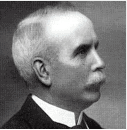I was once part of a team of managers in a large corporate IT department who hired a ‘retired’ actor to be the IT Director.
This statement requires some elaboration.
The IT director of a large company actually has little work, so long as the members of his management team know what they are doing. He does, however, need to look smart, sober, and dignified and to behave at all times with a natural ‘gravitas’. His only duties are to arbitrate, convene meetings properly, and have the knack of being able to summarise a mass of detail into an overall picture. He must also work with complete integrity to reassure nervous stockholders and board members. His final task is to translate complex technological issues in such a way that everyone thinks they understand them. He can then spend the rest of the week on the golf course, or staring out the window, meditating. The last thing he should think of doing is ‘getting involved’. ‘Smartness’ is not to be encouraged in an IT director. He should never have ideas of his own, but merely encourage others to have them; he can later turn them into a departmental initiative if the consensus favours them.
This may come as a surprise. To outsiders in a large organisation, the IT director seems a man of inestimable importance. ‘I wonder if Tony can come up with the goods for the new project’, they will say, or, ‘Let’s ask Tony what the long term strategy should be with the reorganisation of the logistics’. It is as if Tony is rushing around personally doing everything in a muck sweat. Actually, if the IT department is working as it should, he has almost nothing to do besides looking serious, and promising to ‘get back with an answer’.
Once an IT department is running in this harmonious way, it causes disruption if the IT director leaves. There is always the temptation in other parts of the enterprise to jolt the IT department out of its complacency by hiring a new person with strong views and opinions; a chief who will lead from the front. I have never seen an IT department benefit from a new broom. On the contrary, the consequences are generally messy and unfortunate.
The inspiration for our idea of hiring an actor to undertake the role of IT director comes from a wonderful novel by Philip K Dick, ‘The Penultimate Truth’ in which a group of manipulative but powerful people in government decide to construct an animatronic puppet, called Yancey. The Yancey puppet is subsequently elected by them as president. The inner coterie, called Yancey Men, write all the scripts uttered by the puppet, in order to delude the population. The novel was a clever satire of the Eisenhower government and the ‘invention’ of the Cold War as a political device, but also eerily reminiscent of the Blair regime in the UK.
Installing an actual puppet as the figurehead of the IT department seemed beyond us, but the idea in principle was a good one. As luck would have it, a firm of consultants we’d employed to advise us on workflow systems included a man who embodied the archetypal bishop, with a grave and thoughtful face, tall, slim, well-dressed, with hair turning slightly silvery on the temples. One evening, this very consultant, whilst being plied with drinks in the local pub, became garrulous and confessed to me that he was actually an actor, whose days as a matinee idol were long past, but whom the consultants had taken on to lend tone and dignity to their team. He was entirely innocent of any in-depth knowledge of IT.
Once I’d got over my initial indignation at the effrontery of the trick, I began to watch him closely and my admiration grew. Every word he spoke, every gesture, radiated wisdom and measured courtesy. He could have recited ‘Baa Baa Black Sheep’ and made it sound like a corporate mission statement.
On speaking to the other managers, I discovered that we’d all been struck with the same thought. This man was a gift from a higher entity. It would be a sin not to headhunt him as our new IT director. We’d tell him what to say, and what to do, and soon we would have our very own, living, breathing Yancey. We’d be left in peace to run our departments, whilst our Mr Yancey did all the boring things that are the lot of an IT director. We knew he’d bond well with the board and the shareholders. It was an easy decision to make, and we made it.
Well, it all went like clockwork. We appointed him, and he did what he was told. Of course, we had to give him some training in corporate IT-speak. One must address concerns, not solve problems (this came about after a lawsuit in the motor industry), manage expectations rather than lie. Admit to confusion rather than accuse someone else of lying. One should refer to things as sub-optimal rather than cr*p, non-final rather than unfinished. He had, however, already been well-drilled in the phraseology by his consultancy, as it was part of their initiation training.
We had weekly meetings at which he’d brief us, and we’d decide on how he should react. He’d come up with all the questions he’d been asked and we’d tell him how to respond. We were in awe of his talent at presentation; we felt no jealousy at his exalted status, only respect for his thespian profession. A most harmonious interval ensued. We ‘pulled the strings’ and our puppet wowed the audience. We got on with the real work of our departments, secure in the knowledge that we were being ably represented in meetings and in the interface with other parts of the corporation. The IT department’s reputation improved mightily and budgets increased, as the board gazed spellbound at our profound and empty-headed leader.
The inevitable storm appeared like a ‘cloud no bigger than a man’s hand’. At one of our meetings he suddenly asked why we hadn’t considered ‘Snibbo’ in our IT solutions. We laughed genially and explained that the reason was that ‘Snibbo’ may as well not exist; its influence would be so small. He shrugged and changed the subject. (I use the word ‘Snibbo’ instead of the real word, in order to avoid legal issues: practically every possible name in IT has been used up).
As the next meeting drew to a close, he said, ‘I’m surprised you haven’t considered a forward-looking solution to our workflow issues, such as ‘Snibbo’. I’m told that you are inclined to be very conservative in your thinking’. We blushed prettily at the unintended compliment but puzzled about where ‘Snibbo’ had come from. Our Yancey was not normally given to independent thought.
Over the next few days, I quizzed other members of the management team but they all looked innocent. Nobody could remember feeding these lines to our puppet. We met together at the pub to try to puzzle out what was going on, but drew a blank. Then the thought struck us with horror: was someone else putting thoughts into his head?
It quickly got horribly worse. He went to the MD of the company and fired him up on the necessity of getting IT solutions based on ‘Snibbo’. He explained to him that the only thing holding him back was his backward-looking management team in IT. Such were his presentation skills that the MD became putty in his hands.
At our next meeting, we decided to turn on him in a concerted way and explained to him the dangers of overselling a product-type as a panacea for the IT requirements of the business. He shrugged and merely said that he had received expert advice on the subject. He surprised us all by telling us that we would do well to become properly acquainted with ‘Snibbo’ and its repercussions for the rollout of IT solutions in a fast-moving business; this tirade promptly ended with some techno-babble too arcane to be repeatable. He’d learned it off by heart, just as he had when wowing the matinee audiences during his theatre days.
I was now desperate to find out who had gained control of our ‘Yancey’ and was using the device against us, the true owners. I was most indignant, though I couldn’t quite work out what crime had been committed against us. After much ferreting about, and closely questioning his secretary, I uncovered the new puppeteer: a business-analyst who was supposed to be preparing the ground for an IT initiative in the Purchasing Department. Somehow, in the course of reporting progress on his project, he had inserted the idea of ‘Snibbo’ as ‘the glue between all our disparate systems’ into Yancey’s fertile and impressionable mind.
It proved difficult to ask for our puppet back, especially when the new puppeteer had insinuated himself into an impregnable position, being seen as a fount of wisdom by both the MD and the IT director. We couldn’t explain to the board what we’d done. It might be taken the wrong way.
We did all we could to counter the tide of misinformation. We hired a well-known expert in workflow systems who was able to say that Snibbo was not even on the candidate list for a workflow solution and had no track record of success. We later discovered highly suspicious links between the business analyst and the publishers of the Snibbo Software system. We also found out that the system was not yet even working on any reference site.
Skilfully, our Yancey puppet raged through our defences, like Godzilla lumbering towards Tokyo through the electric fence. The siren call to the business was irresistible: ‘There is really no need to reorganize the business to make it more efficient, when all you need is ‘Snibbo’ to make current processes quicker and less error-prone’.
I can leave the wider consequences safely to the reader’s imagination. All I need to relate is that a vast new initiative introducing ‘Snibbo’ was launched. When the reality of the product became apparent, teams of programmers from the Indian subcontinent arrived, all claiming to be experts in the subject, and eager to add ‘the missing five percent’ to the product and integrate it into the company’s existing systems.
I didn’t hang about to see the final act of the tragedy, like in Hamlet, with bodies littered around the stage. Our actor-turned-consultant was one of the corpses. When the curtain was pulled down, a new, slimmer IT department emerged, with no appetite for radical IT solutions. Even now, people wince when the word ‘Snibbo’ is mentioned.
As for me, I should, I suppose feel guilty for my part in creating the monster that reared up on its hind legs and destroyed all around it. It has certainly modified my conception of the perfect IT director. An empty head is never a good idea, even if it is well-groomed and dignified. Wisdom and experience cannot, it seems, be applied by remote control.





Load comments